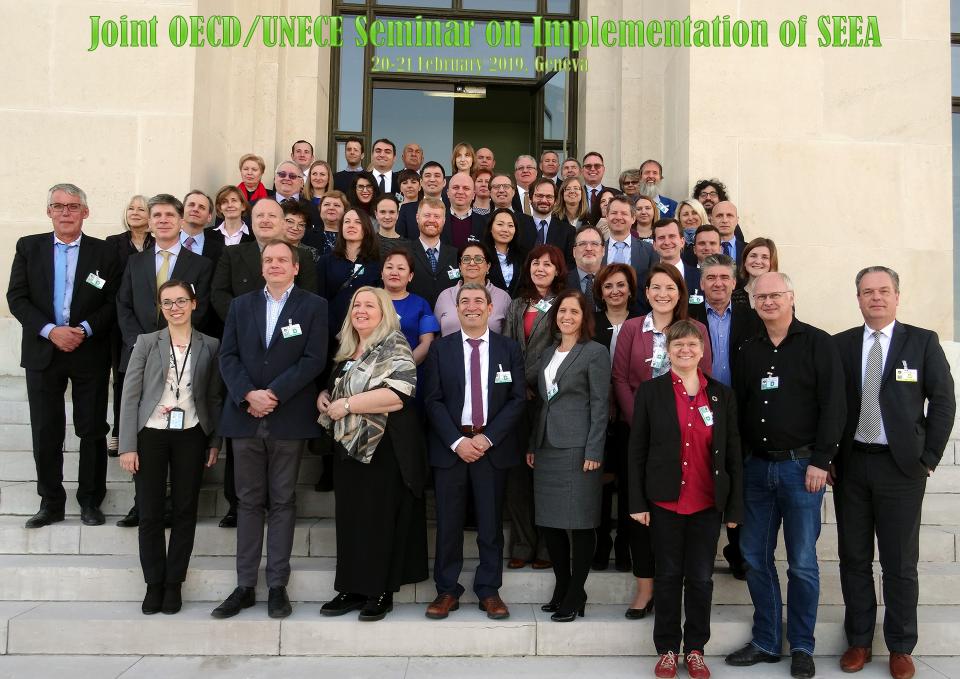Joint OECD/UNECE Seminar on the implementation of SEEA

The fourth joint OECD/UNECE Seminar on the implementation of SEEA was held from 20-21 February 2019 in Geneva, Switzerland. More than 70 experts from 33 countries, several international organisations and NGOs participated in the meeting.
Participants discussed policy uses and implementation challenges of water accounts, environmentally-related taxes and subsidies accounts as well as SEEA Experimental Ecosystem Accounts. National examples were presented by Armenia, Australia, Canada, Costa Rica, Denmark, Estonia, Germany, Kazakhstan, Mexico, Republic of Moldova, Netherlands, Russian Federation and Sweden.
Based on the conclusions of the sessions the following decisions and recommendations for future work were agreed:
- More (joint) work is needed to explore the use of satellite images for SEEA in general and for water asset accounts and SEEA-EEA in particular. This also addresses the need to have more geographically detailed information in the water accounts. In the future, satellite images may help in this respect, also to track water stocks and flows in remote locations. Nevertheless, the use of these images with appropriate algorithms is a challenging issue, in particular to adequately track the volume of water in water-covered areas. We need to join efforts and share experiences.
- International organisations should continue to harmonise terms and definitions used in international water questionnaires, SEEA, Aquastat and important indicator frameworks such as the SDG indicators.
- More joint work is needed to better understand the combined incentives generated by fees, taxes and subsidies. SEEA allows to interlink the various accounts, including the integration of economic accounts with physical accounts, and could provide an important starting point for this.
- Countries should continue with their efforts to produce pilots of SEEA Ecosystem Accounts and share their experience.
- Participants recommended to continue with the organisation of “Joint OECD/UNECE Seminars on SEEA implementation” on an annual basis. The seminar should last for two days, focus on strategic issues of interest for all countries in the region and find a balance between technical discussions of established accounts, emerging issues and policy uses. Similarly to the 2019 seminar, the focus should be on no more than 3-4 topics.
- Proposed topics for the next seminar are:
- Using new techniques and data sources (e.g. big data, including remote sensing) for compiling SEEA accounts;
- Integrating accounts for cross-cutting issues and complex policy questions (e.g. climate change, resource efficiency and the circular economy);
- SEEA Experimental Ecosystem Accounting: revision process and pilot examples;\
- Measuring the environmental goods and services sector.
All presentations and the report of the meeting are available at http://www.unece.org/index.php?id=50357
